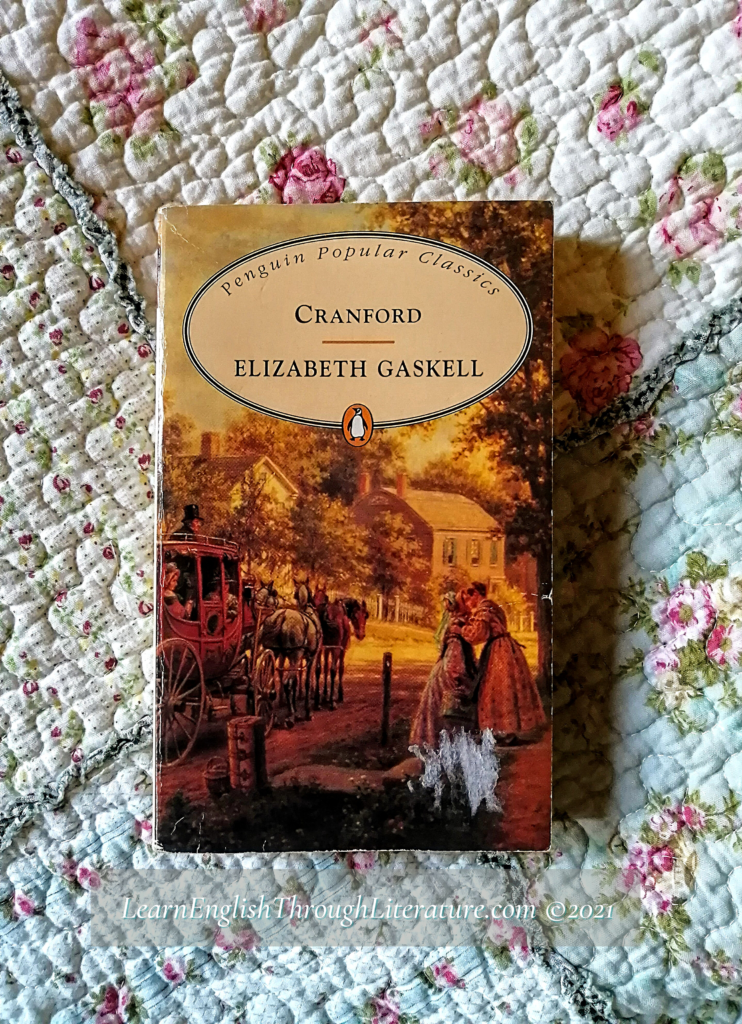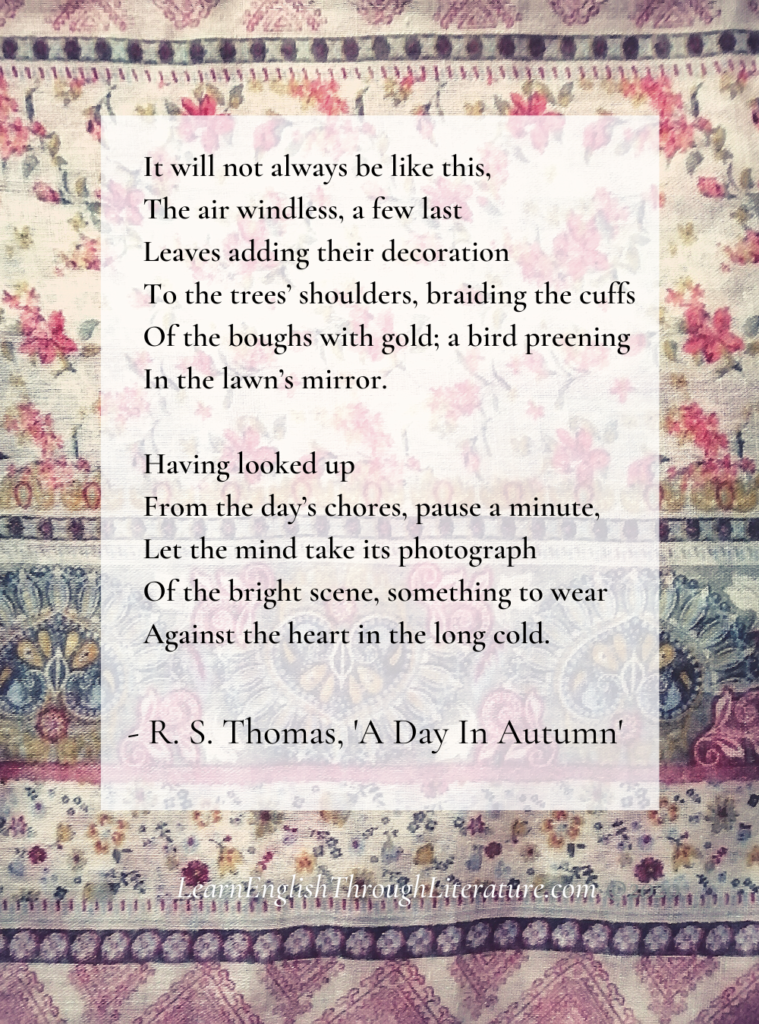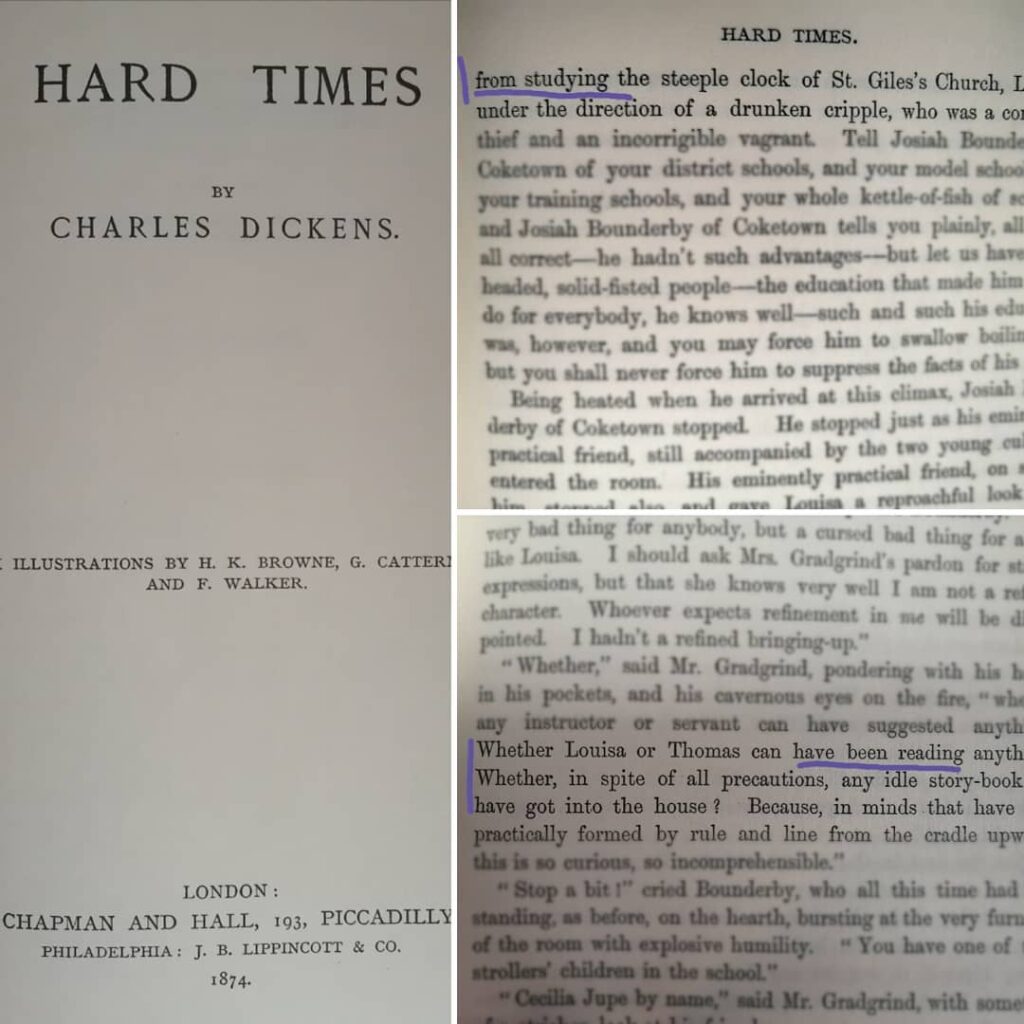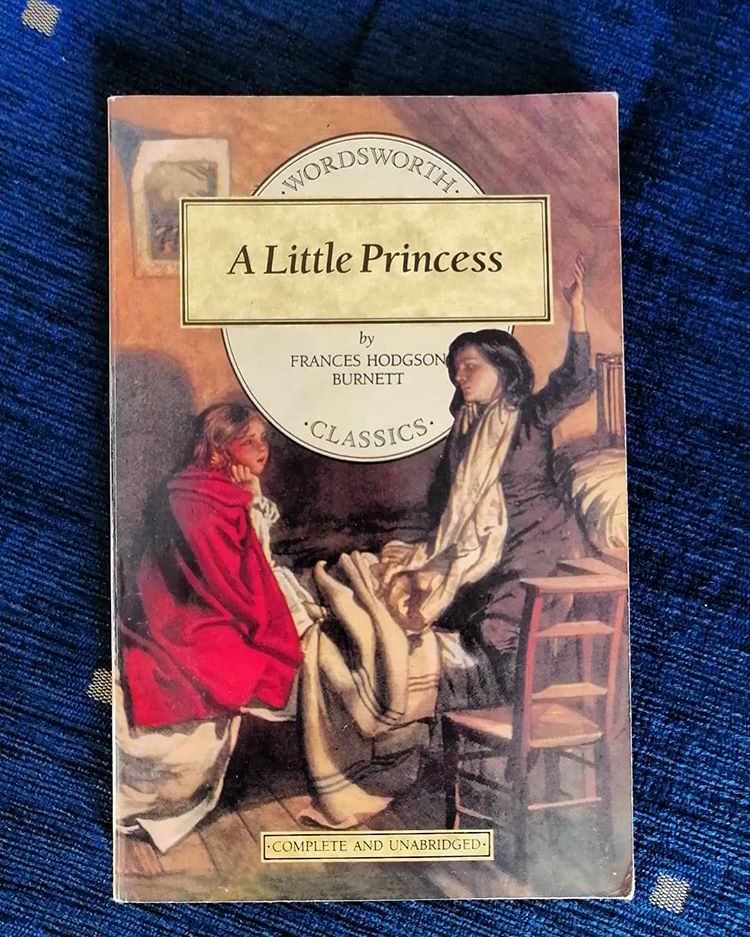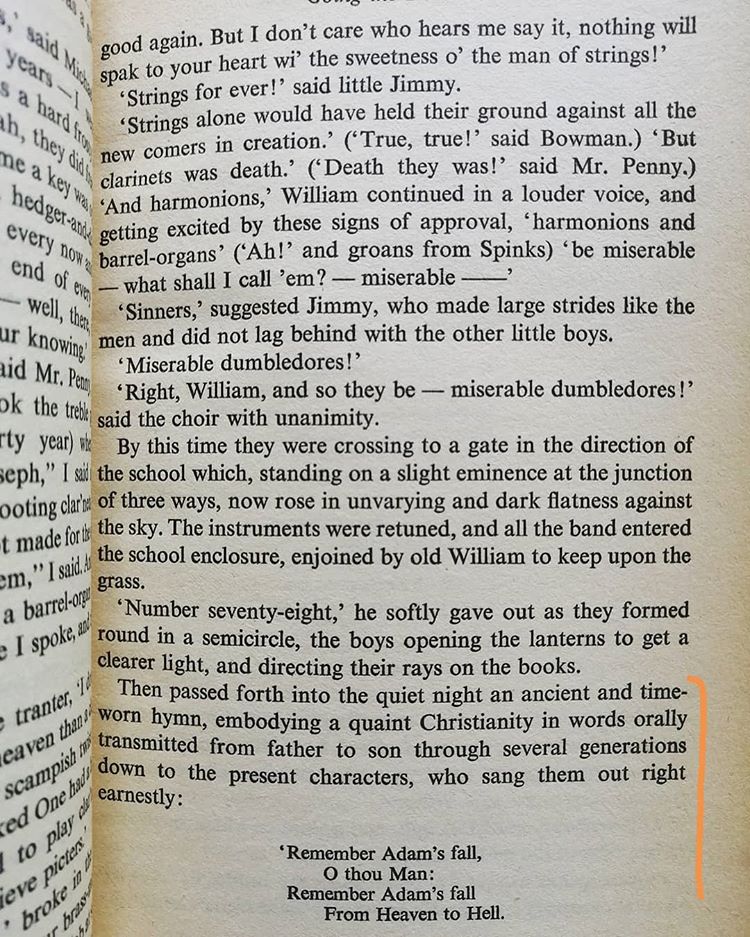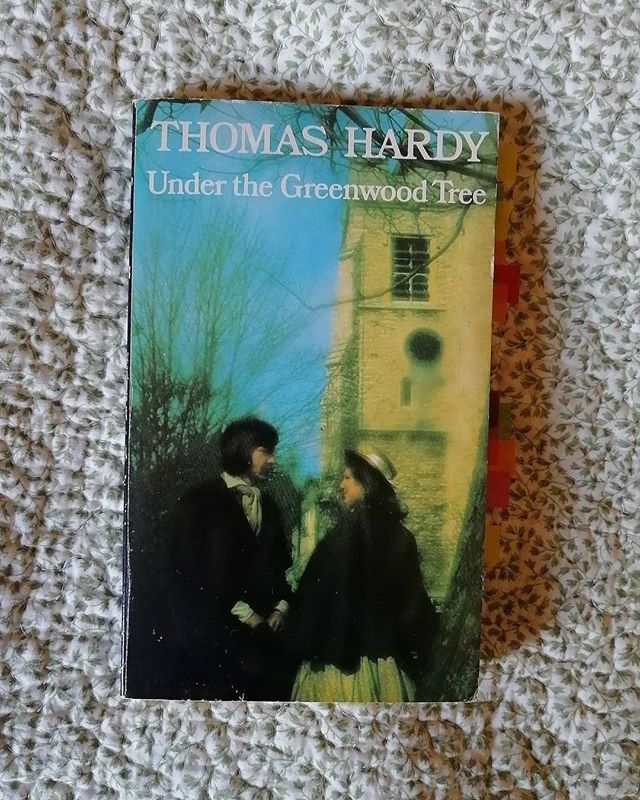Mini-Lesson Monday, Lesson #222 (Part 2): ‘At Home, In Days Gone By’ – 9 prepositions that express time
📙 ‘There was all the more time for me to hear old-world stories from Miss Pole, while she sat knitting, and I making my father’s shirts.’ – Elizabeth Gaskell, Cranford (1853) … ✏️ (If you missed the first part of this Lesson on prepositions of time, you can find it here). ✏️ … 📝 #5 […]


